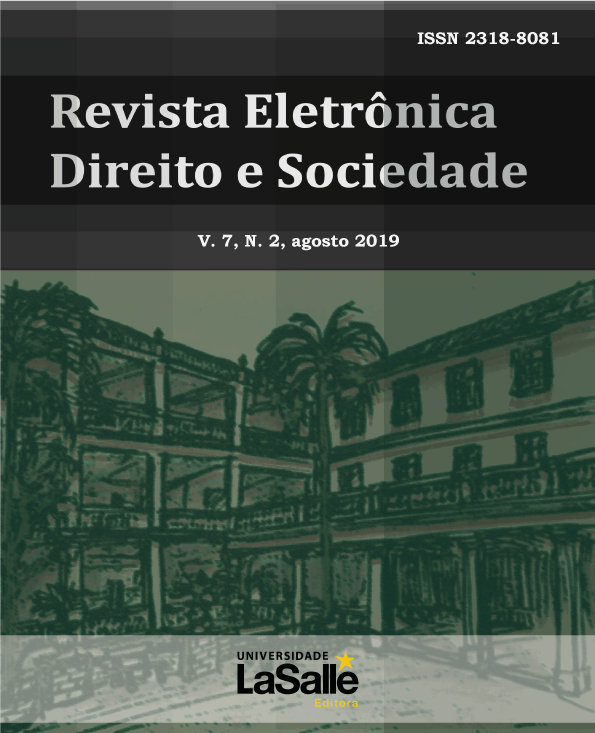The forced hospitalization of adults who abuse drugs
DOI:
https://doi.org/10.18316/redes.v7i2.6000Keywords:
Compulsory Commitment to Hospital, Drugs. Mental Health, Legal Capacity, Competence.Abstract
This study is about compulsory commitment to hospital (against one’s will or without consent) of abusive drug user adults (drug addicted). The problem under research consists of evaluating, from the legal viewpoint, the legitimacy or not of impose such measure, and further to analyze the requisites and assumptions concerning the exceptional application thereof. The investigation was based on Constitutionalization of Private Law, doctrine, legislation and case law. Discusses the conflict or tension between formal freedom and paternalism to justify or reject interfering on the existential sphere in the situation under analysis. Based on Michel Foucault’s lessons, the investigation highlights the inappropriate confusion of concepts such as capacity-personality, disease-interdiction, madness-danger, drug abuse-incapacity, commitment to hospital-interdiction, which leads to distorting the rationale for commitment to hospital. Upon revisiting and disentangling those categories, aims at demonstrating the limits of the traditional dogma of the incapacities’ system to face the topic. Thus, points out that committing someone to hospital neither depends on nor results from a process of interdiction. The research sustains that caring for health of a person with abusive drug use is the only constitutionally admissible option for his compulsory commitment to hospital, considering that any other function such as punishment, segregation or isolation are unconstitutional. Drug abuse affects mainly a person’s self-determination (self-control), but not necessarily the ability to understand and to express oneself (legal capacity). Furthermore, the classification of “habitual drinkers and drug addicts”, as relatively incapable is discussed. The thesis is not in favor of compulsory commitment to hospital; however, it does not completely exclude it either. It should be a subsidiary, temporary action which presupposes that there is not enough non-hospital mechanisms (outpatient) and the need to protect the person to be committed.Downloads
Published
Issue
Section
License
Authors who submit their manuscripts for publication in the “REDES” Magazine agree to the following terms:
The authors claim to be aware that they retain copyright by giving “REDES” the right to publish.
The authors declare to be aware that the work submitted will be licensed under the Creative Commons Non-Commercial Attribution License which allows article sharing with acknowledgment of authorship and publication in this journal.
The authors declare to be aware that by virtue of the articles published in this journal have free public access.
The authors declare, under the penalty of the law, that the text is unpublished and original and that they are aware that plagiarism has been identified, plagiarized authors will be informed - willingly, to take legal action in the civil and criminal sphere - and, plagiarists will have their access to the magazine blocked.
The authors state that - in case of co-authoring - all contributed significantly to the research.
Authors are obliged to provide retractions and (or) corrections of errors in case of detection.
The authors are obliged not to publish the text submitted to “REDES” in another electronic journal (or not).
The Electronic Journal Law and Society - REDES - is licensed under a Creative Commons License. Attribution-NonCommercial 4.0 International.Based on work available at "http://revistas.unilasalle.edu.br/index.php/redes/about/submissions#copyrightNotice".
Permissions in addition to those granted under this license may be available at http://creativecommons.org/.

